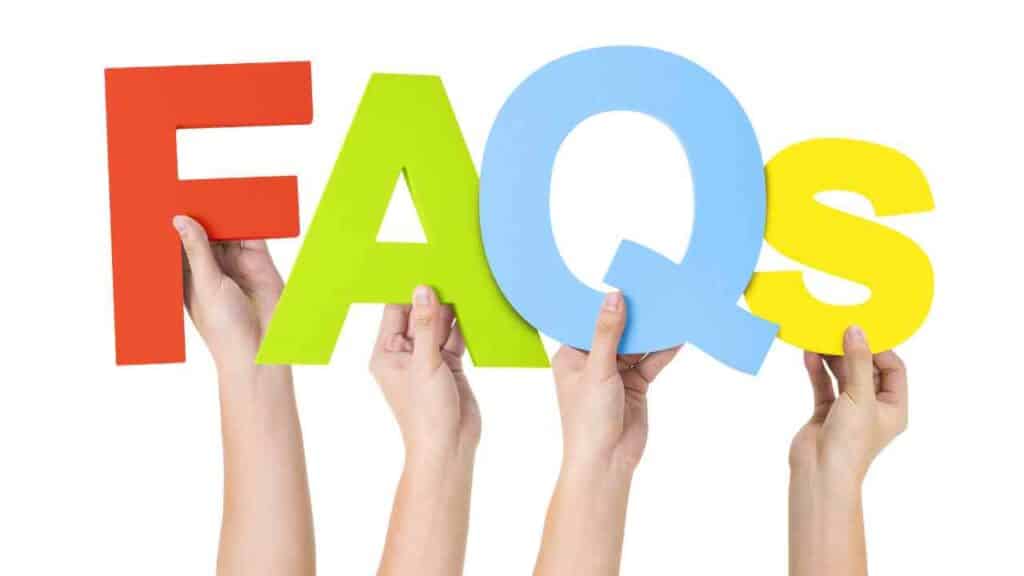Maximizing CRM Capability to Meet Business Goals

Customer Relationship Management (CRM) is a vital tool for businesses of all sizes. It allows companies to manage their interactions with customers, streamline processes, and improve overall customer satisfaction. However, many businesses fail to fully utilize the capabilities of their CRM systems, missing out on valuable opportunities to meet their business goals. In this article, we will explore how businesses can maximize their CRM capability to achieve their objectives and drive success.
The Importance of CRM in Business
CRM systems have become an integral part of modern business operations. They provide a centralized platform for managing customer data, tracking interactions, and analyzing customer behavior. By leveraging CRM capabilities effectively, businesses can:
- Improve customer satisfaction and loyalty
- Enhance sales and marketing efforts
- Streamline internal processes
- Gain valuable insights into customer behavior
- Identify and target high-value customers
With these benefits in mind, it is crucial for businesses to maximize the potential of their CRM systems to achieve their business goals.
Choosing the Right CRM System
Before diving into maximizing CRM capability, it is essential to choose the right CRM system for your business. There are numerous CRM solutions available in the market, each with its own set of features and functionalities. When selecting a CRM system, consider the following factors:
- Scalability: Ensure that the CRM system can grow with your business and accommodate future needs.
- User-Friendliness: Look for a CRM system that is intuitive and easy to use, as this will encourage adoption among employees.
- Integration Capabilities: Check if the CRM system can integrate with other tools and software your business uses, such as email marketing platforms or project management software.
- Customization Options: Choose a CRM system that allows you to tailor it to your specific business requirements.
- Customer Support: Consider the level of customer support provided by the CRM vendor, as you may require assistance during implementation and ongoing usage.
By carefully evaluating these factors, you can select a CRM system that aligns with your business goals and maximizes your chances of success.
Optimizing Data Management
One of the key aspects of maximizing CRM capability is optimizing data management. A CRM system is only as good as the data it contains, and businesses must ensure that their customer data is accurate, up-to-date, and easily accessible. Here are some strategies to optimize data management:
- Regular Data Cleansing: Conduct regular data cleansing activities to remove duplicate or outdated records from the CRM system. This will improve data accuracy and prevent confusion among employees.
- Data Integration: Integrate your CRM system with other data sources, such as your website or social media platforms, to gather comprehensive customer information. This will provide a holistic view of your customers and enable personalized interactions.
- Data Segmentation: Segment your customer data based on various criteria, such as demographics, purchase history, or engagement level. This will allow you to tailor your marketing campaigns and communication to specific customer segments, increasing their effectiveness.
- Data Security: Implement robust security measures to protect customer data from unauthorized access or breaches. This will build trust with your customers and ensure compliance with data protection regulations.
By optimizing data management practices, businesses can leverage the full potential of their CRM systems and make informed decisions based on accurate and reliable data.
Automating Processes and Workflows
Automation is a powerful feature of CRM systems that can significantly enhance efficiency and productivity. By automating repetitive tasks and workflows, businesses can free up valuable time for employees to focus on more strategic activities. Here are some examples of processes that can be automated using a CRM system:
- Email Marketing: Set up automated email campaigns triggered by specific customer actions or events. This will ensure timely and personalized communication with customers, leading to higher engagement and conversion rates.
- Lead Management: Automate lead scoring and routing processes to ensure that leads are assigned to the most appropriate sales representatives. This will improve response times and increase the chances of converting leads into customers.
- Customer Support: Implement a ticketing system within your CRM system to automate the handling of customer support requests. This will streamline the support process and provide a better customer experience.
- Sales Forecasting: Utilize CRM analytics and forecasting tools to automate the generation of sales forecasts. This will provide valuable insights into future revenue projections and help in making informed business decisions.
By identifying processes that can be automated and leveraging the automation capabilities of your CRM system, you can optimize efficiency, reduce manual errors, and improve overall business performance.
Utilizing CRM Analytics and Reporting
CRM systems offer powerful analytics and reporting features that can provide valuable insights into customer behavior, sales performance, and marketing effectiveness. By utilizing these capabilities effectively, businesses can make data-driven decisions and optimize their strategies. Here are some ways to leverage CRM analytics and reporting:
- Customer Segmentation: Analyze customer data to identify high-value segments and develop targeted marketing campaigns. This will improve the return on investment (ROI) of your marketing efforts and increase customer acquisition and retention rates.
- Sales Performance Tracking: Monitor sales activities and performance metrics to identify areas for improvement and optimize sales strategies. This will help in setting realistic sales targets and motivating sales teams.
- Customer Satisfaction Analysis: Use customer feedback and satisfaction scores to identify areas where customer experience can be enhanced. This will enable you to proactively address customer concerns and improve overall satisfaction levels.
- Marketing Campaign Evaluation: Track the performance of your marketing campaigns, such as email open rates or click-through rates, to assess their effectiveness. This will allow you to refine your marketing strategies and allocate resources more efficiently.
By regularly analyzing CRM data and generating insightful reports, businesses can gain a deeper understanding of their customers and make informed decisions to drive growth and success.
Case Study: XYZ Company
XYZ Company, a leading e-commerce retailer, successfully maximized their CRM capability to achieve their business goals. By implementing a robust CRM system and following best practices, they experienced significant improvements in various areas:
- Increased Customer Satisfaction: By leveraging CRM analytics, XYZ Company identified pain points in their customer journey and implemented targeted improvements. As a result, customer satisfaction scores increased by 20%.
- Improved Sales Performance: Through automation and data-driven insights, XYZ Company optimized their sales processes and provided sales representatives with valuable customer information. This led to a 15% increase in sales conversion rates.
- Enhanced Marketing Effectiveness: By segmenting their customer data and personalizing their marketing campaigns, XYZ Company achieved a 30% increase in email open rates and a 25% increase in click-through rates.
XYZ Company’s success story highlights the importance of maximizing CRM capability and the positive impact it can have on business outcomes.
Maximizing CRM capability is crucial for businesses to achieve their goals and drive success. By choosing the right CRM system, optimizing data management, automating processes, utilizing CRM analytics, and learning from successful case studies, businesses can unlock the full potential of their CRM systems. With the right strategies and tools in place, businesses can improve customer satisfaction, enhance sales and marketing efforts, streamline internal processes, and gain valuable insights into customer behavior. Remember, a well-utilized CRM system is a powerful asset that can propel your business towards growth and profitability.
Visit https://SaasExpert.ca – Your All-In-One Sales and Marketing Platform for small businesses, agency owners, and marketers.
Learn more about “Aligning Resources With Business Priorities Through CRM” right here.
Frequently asked questions about Maximizing CRM Capability to Meet Business Goals.

How can CRM systems be optimized to achieve our sales targets more efficiently? 🎯
Answer: To turn your CRM into a sales-target-hitting machine, it’s all about leveraging its automation and analytics powers. 🤖 Set up automated workflows to guide prospects through the sales pipeline seamlessly. Utilize the CRM’s advanced analytics to fine-tune your sales strategies, focusing on high-conversion activities. By aligning the CRM’s features with your sales processes, you not only hit those targets but often surpass them with flying colors!
What CRM features should we focus on to improve customer retention? 💡
Answer: Customer retention starts with outstanding customer experiences – and your CRM is the key to unlocking this. Focus on features like personalized communication triggers, comprehensive service histories, and satisfaction surveys. 💌 These tools help tailor your interactions to each customer’s needs and preferences, making them feel valued and heard. By consistently meeting, if not exceeding, customer expectations, you’ll foster loyalty that keeps them coming back.
Can CRMs help align our marketing efforts with broader business objectives? 📊
Answer: Absolutely! Think of your CRM as the bridge that connects marketing campaigns to business objectives. By tracking customer interactions and engagement, your CRM can pinpoint what resonates with your audience. 🌉 Use this data to align your marketing content, channels, and campaigns with the broader business goals, ensuring every message is purposeful and every campaign drives those objectives home.
How do we ensure our CRM adapts to the evolving needs of our business? 🔄
Answer: The beauty of modern CRMs is their scalability and flexibility. To keep your CRM in step with your business’s evolution, regularly review and update your system settings and processes. Embrace CRM customization options to adapt functionalities as your business grows and changes. 🌱 Plus, stay on top of CRM updates and training, so your team is always using the platform to its full potential.
What strategies can we implement to enhance collaboration using our CRM system? 🤝
Answer: Collaboration flourishes when information flows freely. Use your CRM to break down silos by setting up shared databases, real-time communication channels, and collaborative spaces within the system. 🔄 Encourage departments to input and access shared data, which enhances transparency and coordination. Remember, a CRM that’s configured to promote teamwork transforms individual efforts into collective success.
- crm
- customer relationship management
- Maximizing CRM Capability to Meet Business Goals
- What is CRM Software?






